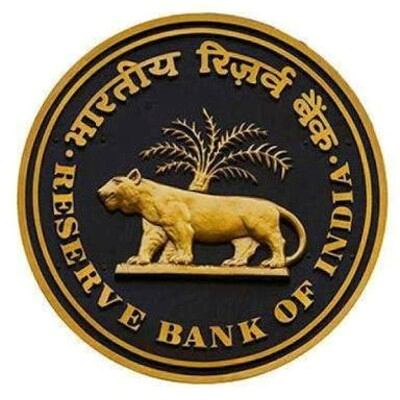Navi Finserv Pulls Bond Sale Amid RBI Scrutiny
October 23, 2024, 4:03 am
Navi Finserv has hit the brakes. The non-bank finance company (NBFC), founded by Sachin Bansal, known for his role in Flipkart, has withdrawn a planned bond sale. This decision comes just days after the Reserve Bank of India (RBI) imposed restrictions on the company, barring it from issuing new loans. The financial landscape is shifting, and Navi is caught in the crossfire.
Originally, Navi Finserv aimed to raise 1 billion rupees, roughly $12 million, through bonds with a coupon rate of 10.40%. The bonds were set to mature in two years and three months. However, the RBI's recent actions cast a long shadow over this plan. The regulator flagged Navi and three other NBFCs for "usurious" pricing practices. They were accused of charging excessive mark-ups over their funding costs. This regulatory clampdown has sent ripples through the financial community.
The bond sale was scheduled for bidding on a Monday, but it never took off. Five merchant bankers reported the withdrawal, but Navi Finserv remained tight-lipped about the specifics. The company did not respond to inquiries, leaving many in the dark. This silence speaks volumes in a world where transparency is key.
The RBI's intervention is not just a slap on the wrist. It’s a wake-up call for the entire sector. The regulator's decision to halt loan disbursements for Navi Finserv raises questions about the company's practices. The financial watchdog is tightening its grip, aiming to ensure fair lending practices across the board. The crackdown on these NBFCs signals a shift towards greater scrutiny and accountability.
Navi Finserv's spokesperson mentioned that the company is reviewing the RBI's circular. They are committed to addressing the concerns raised. But the question remains: how will they navigate this storm? The financial waters are murky, and the current climate is not conducive to risk-taking.
One banker, speaking anonymously, noted that with lending stalled, there’s little sense in borrowing funds. This sentiment reflects a broader anxiety in the market. Investors are wary. They are keeping a close eye on potential rating downgrades for existing bonds issued by Navi. The company's bond rating stands at A, according to Crisil. But will that hold?
The loan book of Navi Finserv was reported at 80.37 billion rupees as of March. This figure represents a significant stake in the market. However, with the RBI's restrictions, the future of this loan book is uncertain. The company’s ability to generate revenue through new loans is now hampered. This could lead to a tightening of liquidity and a reevaluation of its financial strategies.
Navi Finserv's predicament is emblematic of a larger issue facing many NBFCs in India. The sector has been under increasing pressure from regulators. The RBI's actions reflect a growing concern over lending practices that may exploit vulnerable borrowers. The focus is shifting towards responsible lending. The aim is to protect consumers while ensuring the stability of the financial system.
The market's reaction to Navi's bond withdrawal is telling. Investors are on edge. They are reassessing their positions in light of the RBI's actions. The financial ecosystem is interconnected. A ripple in one area can create waves elsewhere. The withdrawal of the bond sale could lead to a loss of confidence in Navi Finserv and similar companies.
In the wake of this development, other NBFCs may also reconsider their funding strategies. The environment is changing. Companies must adapt or risk being left behind. The focus will likely shift towards maintaining liquidity and ensuring compliance with regulatory standards.
Navi Finserv's future hinges on its response to the RBI's concerns. The company must act swiftly and decisively. It needs to reassure investors and stakeholders that it can weather this storm. The path forward may involve restructuring its lending practices and enhancing transparency.
In conclusion, Navi Finserv's withdrawal of its bond sale is a significant event in the financial landscape. It highlights the challenges faced by NBFCs in a tightening regulatory environment. The RBI's actions serve as a reminder that the days of unchecked lending practices are over. Companies must now navigate a landscape marked by scrutiny and accountability. The road ahead will require adaptability, transparency, and a commitment to responsible lending. As the dust settles, all eyes will be on Navi Finserv to see how it responds to this pivotal moment.
Originally, Navi Finserv aimed to raise 1 billion rupees, roughly $12 million, through bonds with a coupon rate of 10.40%. The bonds were set to mature in two years and three months. However, the RBI's recent actions cast a long shadow over this plan. The regulator flagged Navi and three other NBFCs for "usurious" pricing practices. They were accused of charging excessive mark-ups over their funding costs. This regulatory clampdown has sent ripples through the financial community.
The bond sale was scheduled for bidding on a Monday, but it never took off. Five merchant bankers reported the withdrawal, but Navi Finserv remained tight-lipped about the specifics. The company did not respond to inquiries, leaving many in the dark. This silence speaks volumes in a world where transparency is key.
The RBI's intervention is not just a slap on the wrist. It’s a wake-up call for the entire sector. The regulator's decision to halt loan disbursements for Navi Finserv raises questions about the company's practices. The financial watchdog is tightening its grip, aiming to ensure fair lending practices across the board. The crackdown on these NBFCs signals a shift towards greater scrutiny and accountability.
Navi Finserv's spokesperson mentioned that the company is reviewing the RBI's circular. They are committed to addressing the concerns raised. But the question remains: how will they navigate this storm? The financial waters are murky, and the current climate is not conducive to risk-taking.
One banker, speaking anonymously, noted that with lending stalled, there’s little sense in borrowing funds. This sentiment reflects a broader anxiety in the market. Investors are wary. They are keeping a close eye on potential rating downgrades for existing bonds issued by Navi. The company's bond rating stands at A, according to Crisil. But will that hold?
The loan book of Navi Finserv was reported at 80.37 billion rupees as of March. This figure represents a significant stake in the market. However, with the RBI's restrictions, the future of this loan book is uncertain. The company’s ability to generate revenue through new loans is now hampered. This could lead to a tightening of liquidity and a reevaluation of its financial strategies.
Navi Finserv's predicament is emblematic of a larger issue facing many NBFCs in India. The sector has been under increasing pressure from regulators. The RBI's actions reflect a growing concern over lending practices that may exploit vulnerable borrowers. The focus is shifting towards responsible lending. The aim is to protect consumers while ensuring the stability of the financial system.
The market's reaction to Navi's bond withdrawal is telling. Investors are on edge. They are reassessing their positions in light of the RBI's actions. The financial ecosystem is interconnected. A ripple in one area can create waves elsewhere. The withdrawal of the bond sale could lead to a loss of confidence in Navi Finserv and similar companies.
In the wake of this development, other NBFCs may also reconsider their funding strategies. The environment is changing. Companies must adapt or risk being left behind. The focus will likely shift towards maintaining liquidity and ensuring compliance with regulatory standards.
Navi Finserv's future hinges on its response to the RBI's concerns. The company must act swiftly and decisively. It needs to reassure investors and stakeholders that it can weather this storm. The path forward may involve restructuring its lending practices and enhancing transparency.
In conclusion, Navi Finserv's withdrawal of its bond sale is a significant event in the financial landscape. It highlights the challenges faced by NBFCs in a tightening regulatory environment. The RBI's actions serve as a reminder that the days of unchecked lending practices are over. Companies must now navigate a landscape marked by scrutiny and accountability. The road ahead will require adaptability, transparency, and a commitment to responsible lending. As the dust settles, all eyes will be on Navi Finserv to see how it responds to this pivotal moment.

